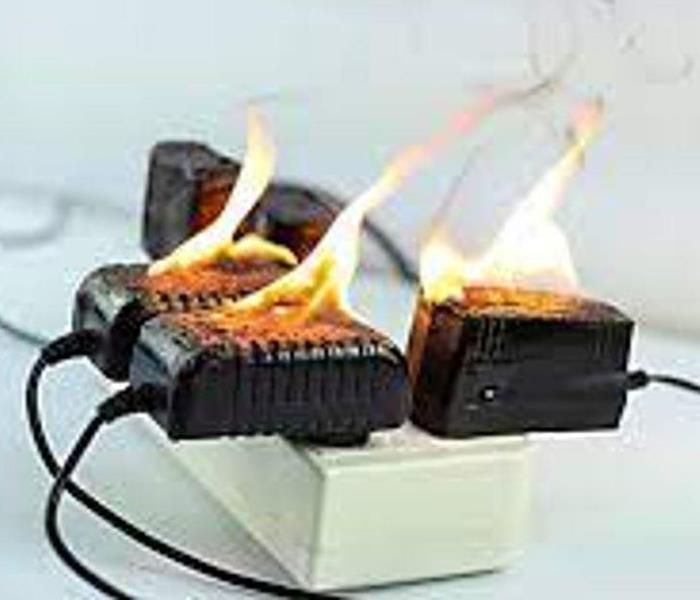How Do You Put Out an Electrical Fire?
9/7/2021 (Permalink)
 Preparing for how to put out an electrical fire, even if you don’t have a fire extinguisher, could be the difference between a minor accident and a ma
Preparing for how to put out an electrical fire, even if you don’t have a fire extinguisher, could be the difference between a minor accident and a ma
Taking precautions such as system upgrades is a smart way to lower your risk of electrical fires. However, it's important to know best practices should you ever be faced with one. Preparing for how to put out an electrical fire, even if you don’t have a fire extinguisher, could be the difference between a minor accident and a major catastrophe.
Put Your Safety First
If an electrical fire is growing quickly and you’re not able to turn the electricity off, you need to put your safety first. To ensure that you’ll have a backup if you’re not able to put out the fire yourself, call 911 right away and be sure to tell the dispatcher that it’s an electrical fire. Then before attempting to put out the fire yourself, make sure you can see two clear pathways to safety. Once one of those two pathways becomes blocked or unsafe to approach, evacuate immediately. It is not worth risking your life.
Disconnect the Electricity
First, disconnect the electricity from the source of the fire. If an appliance is a source, unplug it immediately. Unplugging it will reduce the risk that the flames will spread, and you can focus your efforts on that one source of the fire. If you can’t unplug the source, you’ll need to disconnect the electricity in your home. If you can safely get to your electrical panel, go there immediately and turn the power off. Once you’ve killed the electricity, you are no longer at risk of electrocution, and the source of the fire is now cut off.
Use Baking Soda for Small Electrical Fires
If the fire began in an appliance or an overloaded cord, once you’ve unplugged the power source, toss baking soda over the flames. Baking soda contains the chemical compound sodium bicarbonate, which is also in Class C fire extinguishers. Keeping an open box of baking soda easily accessible could become a lifesaver if a small appliance like a toaster or crockpot bursts into flames.
Never Use Water While the Power Is On
Although it may be your first impulse, never use water on any size electrical fire if your power is still on. Water conducts electricity, so if you toss water onto the flames, you are at risk of being badly shocked.





 24/7 Emergency Service
24/7 Emergency Service